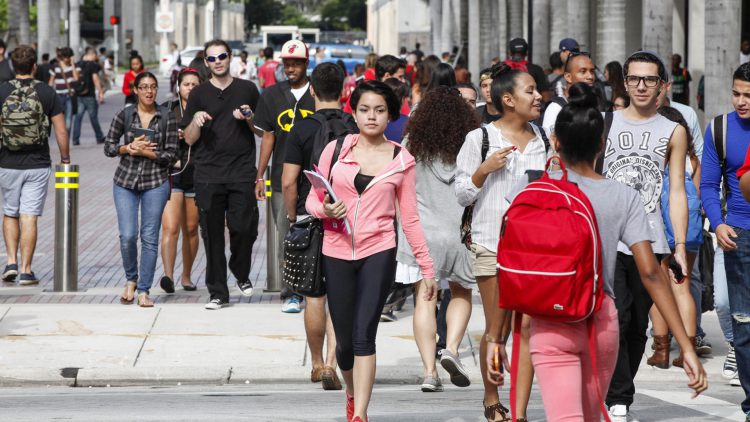Eighty percent of Miami Dade College students who earned an associate in arts (AA) degree in 2015-16 continued their education at a Florida institution the fall following graduation. That’s an impressive increase from the 2011-12 school year, when 73 percent of MDC AA degree completers continued their education, according to a new analysis by MDC’s Office of Institutional Research.
Also noteworthy is that 99 percent of graduates who completed an associate in science (AS) degree in 2015-16 were found to be employed following graduation, with estimated average annual earnings of $47,824. Those numbers are up too, as 93 percent of the AS graduates in 2011-12 were found employed immediately following graduation, averaging $45,684 in annual earnings. Additionally, 95 percent of bachelor’s degree completers in 2015-16 were employed after graduation with estimated average annual earnings of $55,596 – up from 93 percent job placement and $45,240 estimated annual salary for completers in 2011-12.
The MDC analysis also showed that both credit student enrollment and credit hour enrollment were up in fall 2017 over the previous fall, meaning more students enrolled at MDC (up 4.1 percent) and took more credits (up 6.4 percent). Furthermore, the vast majority of students – 70 percent – remained at MDC from fall 2016 to fall 2017. And around 86 percent of students re-enrolled from fall 2017 to spring 2018.
Education and Workforce Needs
In an Op Ed for the Miami Herald, MDC President and Board Member of the Council on Foreign Relations Eduardo J. Padron and Edward Alden, senior fellow at CFR, present their thoughts on a Council Task Force report THE WORK AHEAD: MACHINES, SKILLS AND U.S. LEADERSHIP IN THE TWENTY-FIRST CENTURY.
“It is not just technical skills. Companies of today are looking for problem solvers, for critical thinkers, for people who can work well in teams, and for people who can work comfortably in cross-cultural situations. And those skills are not being taught in most educational institutions today.
Some places are starting to figure this out. At Miami Dade College, which is the largest campus-based institution of higher education in the country, every single program created in the last decade was made possible because of close cooperation between industry and educators.”
Brenna Cuba and Gabriel Riera collaborated on this post
